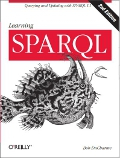A few weeks ago I wrote about free personal data that was really just randomly generated names and contact information created for some tests. Coherent prose by knowledgeable people is something that you can't generate with a python script, and it's interesting to see the schemes that some people have made to find such content.
In the dot com days, I heard from several organizations that were each putting together a Portal for All Things XML. They all told me how great it would be for me to write for them for free because it would be such great exposure. Other XML "experts" would be writing there as well, you see, making this the central place for anyone concerned with XML. Weblogs hadn't caught on yet, but since early 1997 the xml-dev mailing list had already been to XML what the comp.text.sgml Usenet group had been to SGML: the central place where people who knew XML well or wanted to know more exchanged ideas and opinions on related issues. If I had an XML-related idea or question and wanted opinions from key players, I knew that that was the place to take it. Weblogs still hadn't supplanted that, and "portals" never would.
I did write for XML.com, which offered the best reason of all to write for them: they paid, as did IBM developerWorks and various short-lived print magazines with "XML" in their title. When O'Reilly started the O'Reilly Network, I thought that that was a nice place to try the weblogging thing, because it had an audience in place that would see what I wrote, and the idea of trying to convince people to subscribe to a feed of just me was intimidating. (When I started the bobdc.blog weblog, I immediately contacted Planet XMLhack and Planet RDF about becoming part of those feeds—it was like getting a distribution deal.) The O'Reilly Network weblog didn't pay, but there was no pressure, and I thought it would be an interesting experiment to have a weblog devoted to one topic: linking.
It looks like O'Reilly has shifted their online publishing emphasis away from paid articles to the O'Reilly Network weblogs. XML.com used to have three new articles every week, and it was part of my Wednesday morning routine to see what they were; now they only have one, because they're more interested in relying on the free content of the O'Reilly Network blogs. When Bloglines tells me that the Planet XML feed has a new entry "by XML.com", it's more likely to be some musings completely unrelated to XML than it is to be a new XML.com article. Meanwhile, Uche, Edd, Micah, Kendall and others of us with less distinctive first names have started our own weblogs on our own domains instead of letting O'Reilly make advertising revenue from content that we provide to them for free. (Note to Rick Jelliffe: join us... join us...) It seems odd that O'Reilly would put more emphasis on the weblogs as people move away from putting their postings there; I guess for some people, the O'Reilly branding gives them "good exposure," and for O'Reilly, free is better.
Academic publishers have received quality free content for at least a hundred years, but their authors had an incentive, because it advanced their careers in a publish-or-perish sort of way. This model is starting to break up, especially in the world of math, where the journal you publish in is not quite as important as what you publish. (In expensive fields such as biology, research grants are tied more closely to where you publish as an indicator of your work's importance.)
The "good exposure" argument works for the prominent academic journals, it works for YouTube, and it has worked for America's Funniest Home Videos since fourteen years before YouTube existed. The Publishing 2.0 blog frets about whether people who contribute to Frito Lay's new campaign are duly compensated, but the contributors get a shot at the most exposure in all of US media.
Just this past Sunday I got an email about Scribd, which is "kind of like YouTube for publishing, and is meant to be an alternative to a blog", according to the email. Much of the point of YouTube was to simplify the public posting of video; the public posting of prose was never that difficult. As an alternative to a blog, Scribd means that the timestamped nature of blog postings makes them look stale after a while, so they hope that their alternative will appeal more to someone who posts two short stories in February and then another one in November. According to their 30 second tour, they "get wide readership for your work by people who care," although clicking "SEE MORE" after that line displays information about how Google indexes their content (really!) and Scribd tags and categorizes the content, with no real explanation of how the "people who care" will come to read your work on their site. I know the answer, and it gets back to the YouTube analogy: they hope people will be blogging and emailing that they saw a funny/interesting/wacky piece on Scribd, just as we all do know with YouTube. They have a chicken-egg situation with their building of a content collection and their building of an audience, but if they can hustle some good press it might work.
One interesting attempt at garnering free content is the recent launch, complete with a press release, of a Content Technology CTO Blog by the Gilbane Group ("Content Technologies, Trends & Advice"). They provide it "as a service to the content and information technology community. The purpose of the blog is to facilitate ongoing discussion and debate on technologies, approaches and architectures relevant to enterprise content applications," according to its FAQ and first posting. Since that posting, there have been a total of four more postings from the thirteen listed contributors, with the last being over a month ago. I have a good topic for discussion on the Content Technology CTO Blog: what incentive can you give knowledgeable people to contribute content for free? The Gilbane Group can only hope that listed contributors such as Bill Cava and John Newton add their opinions on this topic to the Gilbane blog and not their own.
If anyone wants to write for me for free, let me know. We could call it "The Snee Report" or something, as long as I own the domain name. Advertising revenue won't be enough to even bother with splitting it up, so I'll keep it myself... but just think of the exposure!


Bob -- You're right to note that O'Reilly has cut back on the number of xml.com articles we publish. And I'm not happy about it.
But when you imply that we're doing this because we're just hoping for a free ride, I think you're being a bit unfair. Yes, we are hoping to keep xml.com a valuable gathering place by means of free content, but that's because the paid articles have never made any money.
The sad fact is that CPMs are very low on technical content, and that while the O'Reilly Network as a whole has always made a bit of money, it's been because of a very small number of articles that paid for themselves hundreds of times over, and free content. When we analyze costs vs. revenue from ORN articles, we see that only a tiny percentage of articles actually cover there costs. (And I mean tiny, fewer than a hundred of the many thousands of paid articles we've published over the years.)
At our current average ad rates, an article has to get something like 60-80,000 page views to break even--50,000 to cover just what we pay the authors. We could have addressed this by whoring after page views with sensational content, or tilting our online publishing towards more advertiser-friendly higher-CPM topics. But we've wanted to continue serving hardcore technical communities, and we hoped we could do so by harnessing the enthusiasm of people who want to write about their topics just because they love them.
So while you position this as if we've been trying to get a free ride, it's actually the other way around. We've been trying to make a business out of something that probably should remain (as it is once again becoming) a gathering of enthusiasts.
We're well aware that in the age of RSS, the advantages of aggregating content in one place are reduced, but we like to think that there is still a place for a site like xml.com, even if it only aggregates pointers to the excellent writing that folks like you, Edd, Kendall, and others are doing on your own blogs. And yes, we do think that for lesser known bloggers, having a blog on the O'Reilly Network will provide advantages of exposure and credibility. But it is unfortunate if those bloggers resort to random musings rather than on-topic postings.
Online publishing is in transition. We're all trying to find the best way forward. As you learn what works for you, I hope you'll continue to report on it here.
Thanks Tim. I know that you're running a business with bills to pay. I don't mean to sound accusing when I say "for O'Reilly, free is better," because free is better for everyone, including people reading XML.com articles without paying for them. I'm just sorry that the business model can't support the higher percentage of relevant, professionally written and edited content that used to be available.
Hmm, I might offer one or another divergent opinions here (most ironically: I've never published about XML on any weblog whatever, much less one not connected to XML.com. I've only ever written about XML for $$! :)), I will add another point that I know both Bob and Tim know:
Yes, the online world is struggling to find a sustainable business model (non-porn, biz model, that is), but the other issue that is confronting XML.com specifically is that XML has become infrastructure. Because of its success and ubiquity, the process of learning and teaching XML has been pushed off onto lots of other mechanisms (vendor training, academia, etc).
XML was the hot thing for longer than most hot things, but even its star has faded. That's right and fine and a mark of its success. So XML.com has to re-invent itself, and it's done that in part by focusing on other, related things like AJAX, Web 2.0, etc.
So, yes, everyone needs a new biz model. But we in the tech world better build into ours a set of assumptions about the cyclicality of technical issues, since that's just an unavoidable fact of our working life.
Oh, and I agree with Tim: I'm not happy about only publishing one piece per week either, but we are publishing more PDFs these days in the place of those articles. Of course those PDFs cost $$, so we'll see if that's something that the audience is interested in.
I'd be more interested if it was in XML, even XHTML, instead of PDF.
ObOnTopic: Excellent post, Bob. Sorry for the tangential remark.